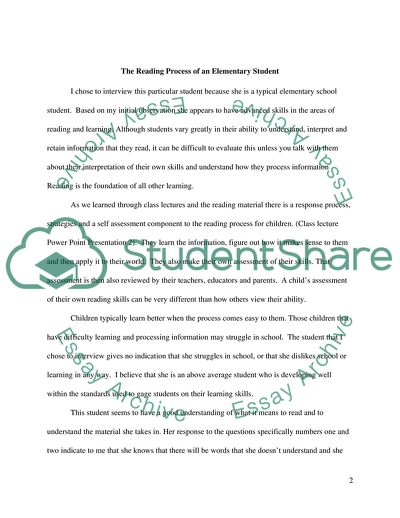Cite this document
(The Reading Process of an Elementary Student Assignment Example | Topics and Well Written Essays - 1250 words, n.d.)
The Reading Process of an Elementary Student Assignment Example | Topics and Well Written Essays - 1250 words. https://studentshare.org/education/1732732-the-reading-process-of-an-elementary-student
The Reading Process of an Elementary Student Assignment Example | Topics and Well Written Essays - 1250 words. https://studentshare.org/education/1732732-the-reading-process-of-an-elementary-student
(The Reading Process of an Elementary Student Assignment Example | Topics and Well Written Essays - 1250 Words)
The Reading Process of an Elementary Student Assignment Example | Topics and Well Written Essays - 1250 Words. https://studentshare.org/education/1732732-the-reading-process-of-an-elementary-student.
The Reading Process of an Elementary Student Assignment Example | Topics and Well Written Essays - 1250 Words. https://studentshare.org/education/1732732-the-reading-process-of-an-elementary-student.
“The Reading Process of an Elementary Student Assignment Example | Topics and Well Written Essays - 1250 Words”. https://studentshare.org/education/1732732-the-reading-process-of-an-elementary-student.


